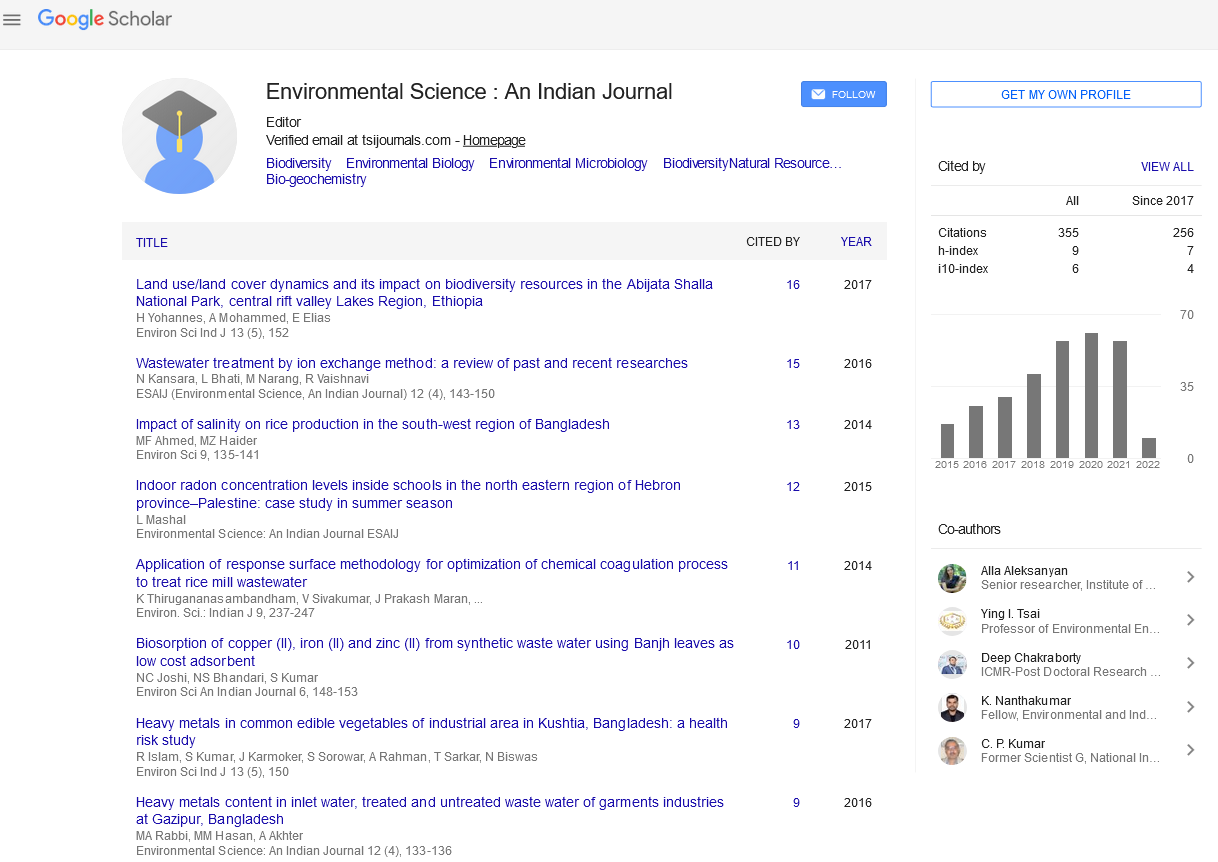Abstract
Effect of global warming on the ice capmelting of poles
Author(s): A.A.El-MeligiThis study invistigates the effect of global warming on the ice caps melting of poles. The research procedures rely on information, reports and data about the polar ice caps melting from the professional organization and institution, such asNational Geographic (NG), National Snowand Ice Data Center (NSIDC), and Japan Aerospace Exploration Agency (JAXA). The data shows that melting of the ice caps increases in different areas of the world. The ice glaciers of Arctic decrease by about 10 % in the past 30 years. The ice loss in Antarctica and Greenland together contributes approximately 12 % of the rise in sea levels. Thickness of the ice caps will be decreased and potential energy of the ice cover will be converted into kinetic energy. The coastal and islands areas of the world are vulnerable to the climate change and will be affected by the ice caps melting. Sea levels could rise about 50 cm by year 2100. This level seems that it is not a significant increase but this rise can cause many effects. It could fast the erosion and would increase the evacuation of the coastal areas in the world. Reducing the green house gases is a crucial need to control global warming. Based on the JAXA data, the sea ice extent in the year 2013 is higher than the extents of years 2012, 2007, and 2011. It means that there is an improvement in the world climate by decreasing the green house gases.

